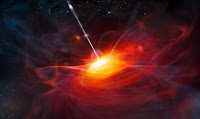Every birth is a rebirth, every death is a redeath. This applies to everything inside the universe and to the universe itself.
Every entity or conception—living and non-living, mental and physical, time and space, memory and history, smallest atom to the largest stars and blackholes—must one day die or be destroyed. Death or destruction is not the end—it is the prelude to rebirth or recreation.
In the cycle of rebirth and redeath, creation and destruction nothing is lost. Mass and energy are always in a state of equilibrium irrespective of the universe being in the phase of creation or destruction. History and memory are not lost at the time of death—their essence gets transferred to the mind of the new generations, making them wise or naive, moral or nihilistic, and leading them to perform good or bad deeds, attain success or failure in their lifetime.
The philosophy of rebirth and redeath has metaphysical and moral implications.
The metaphysical implication is that the universe is a battleground of mass and energy. Energy seeks to rip apart the physical bodies, while mass seeks to empower itself by absorbing and digesting the energy. The contest between mass and energy lasts for as long as the universe (time and space) lasts and leads to the creation, motion and eventual obliteration of all heavenly bodies—atoms, moons, planets, stars, supernovas.
The moral implication is that the good or bad things that happen to us are not due to “chance”; they are not the outcome of “God’s will” either. They are the outcome of our past karma. In this life you are reaping the fruits of your deeds in your past lives, and what you do in this life will have an impact on your subsequent rebirths. One must live morally because immoral conduct has implications for not just this life but all future lives.
All this is one of the important teachings of the Bhagavad Gita.

No comments:
Post a Comment